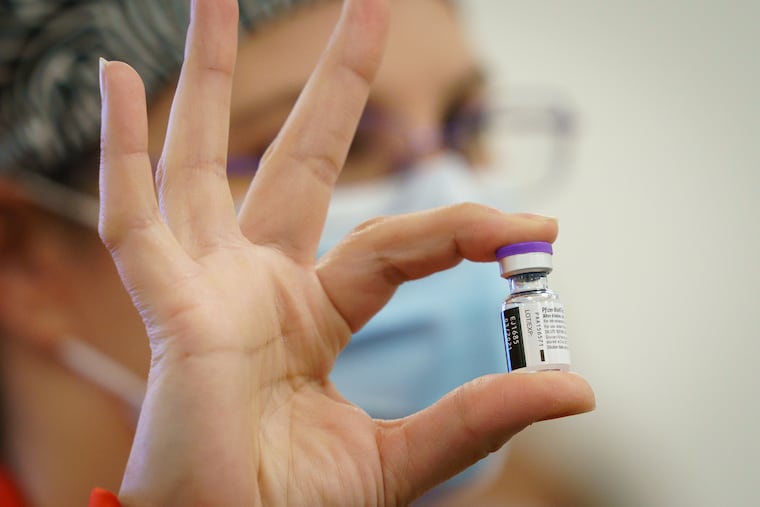When patients ask this primary care doctor if he’ll get the COVID-19 vaccine, his response is always the same | Expert Opinion
Getting vaccinated is a public health action that clinicians not only tell our patients to take but which we should take ourselves, making us both prescribers and social influencers.

At some point during nearly every office visit for the last couple of weeks, my patients have asked me “the question.”
Sometimes they ask right up front, “So first doc, let me ask you …”, and others prefer an addendum, “One more thing before we finish …” Or we may just stumble into it while discussing general preventive care: “Doctor, are you going to get the COVID-19 vaccine?”
“Of course,” I say without hesitation. “As soon as I have the opportunity.”
» READ MORE: Public health leaders should address African Americans’ coronavirus vaccine concerns now | Opinion
Then there is the most common response: “OK then, if you’re willing to get it, then so will I.”
Sure, sometimes there is some additional discussion about safety, how the vaccine works, or how it was developed. We may talk a little bit about the history of vaccines and their unparalleled success in preventing serious contagious illnesses. But often the most pressing question is whether or not I will accept the COVID-19 vaccine when it becomes available to me.
The question has become so common that some of my colleagues were kidding about making T-shirts that say, “Yes, I’m Getting the Vaccine!”
Upon deeper contemplation, though, I am awed by the confidence my patients have placed in me. Despite reassurances from eminent scientists across the country, and even past presidents, they have ultimately based their decision on what I, their primary care physician, am going to do. I am honored by this trust placed in me and inspired by the responsibility and opportunity that comes with it.
Taking action for ourselves and for the greater good of the population, as with vaccination, has long been a challenge. This is especially so during a time when almost everything, fact or otherwise, has become a matter of opinion. Research has shown that people are more likely to engage in a behavior if they think most others are doing the same, a fact that has been leveraged by various industries to motivate consumer behavior.
» READ MORE: Stop telling anti-vaxxers they’re insane for questioning vaccines | Opinion
Getting vaccinated is a public health action that clinicians not only tell our patients to take but which we should take ourselves, making us both prescribers and social influencers. In the case of the COVID-19 vaccine, this is playing out on a grander scale than ever before. Add in the trusting, collaborative nature of clinician-patient relationships, and we have a powerful opportunity to make a positive impact on the health of our communities.
Since this moment of reckoning, I have changed the way I respond to “the question” to show that I am not just an individual willing to get vaccinated, but part of a much larger, like-minded group.
I say, “Of course I’m going to get the vaccine. Many of my clinician colleagues are going to get it, too, just as soon as they can.” The more clinicians are willing to help set the social standard, the more likely we are to have a positive impact on the public health.
Jeffrey Millstein is a primary care physician and medical director for patient experience-regional practices at Penn Medicine.